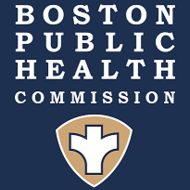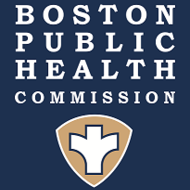Center for Behavioral Health and Wellness
We are working to create a fair, just, and equitable behavioral health system in Boston, with a strong focus on youth. Our goals are to improve mental and behavioral health outcomes, particularly for those affected by racism and systemic inequities.
The Center envisions a community where everyone feels supported and can thrive. The Center aims to reduce barriers that impact behavioral health.
While we do not provide direct clinical services, there are many Boston Public Health Commission programs that do provide clinical and/or direct services.
About our Work
The Center works to address the critical rise in youth mental health issues. We use an equity-based public health approach. This approach focuses on three main areas:
- Workforce: Strategies to recruit, expand, and train a more diverse, culturally competent, trauma-informed behavioral health workforce that fully represents and reflects the diversity of Boston communities.
- Communication: Public communications about wellness, behavioral health, and substance use that address stigma, offer skills in addressing behavioral health issues, and acknowledge historic and ongoing barriers to care, with an initial focus on youth behavioral health.
- Capacity: Capacity building and training programs in behavioral health across Boston in collaboration with community partners.
In addition, our work will reach across Boston to achieve these goals:
- Address Boston residents' longstanding and emergent behavioral health needs through a comprehensive public health approach to behavioral health
- Develop innovative, evidence-based, and sustainable prevention and response models for behavioral health and wellness that address systemic inequities through a thorough and coordinated citywide response
- Align, coordinate, and support existing behavioral health and wellness programming within BPHC bureaus and City departments.
- Enhance community efforts to build resilience and improve behavioral health in everyday settings such as schools, workplaces, and faith-based organizations
- Advocate for changes in the community and institutional infrastructure that mitigate risk factors that negatively affect behavioral health, especially in historically underserved populations.
Sign up for our Newsletter
Each month, the Center will release a newsletter highlighting key resources across Boston’s mental, behavioral, and emotional health and wellness landscape. It will provide valuable tools and insights to support youth and community well-being. Our focus will also deepen understanding of our work in three critical areas: workforce diversification and pathway expansion, communication campaigns, and capacity building. By shining a light on these efforts, we aim to strengthen connections, share knowledge, and empower all of us to promote equitable public mental health.
Heads Up Boston
The "Heads Up" campaign was born from conversations with Boston teens. It is a campaign that empowers teens (ages 14-18) to talk about their mental health, support one another, and seek help from trusted adults when needed. "Heads Up" urges young people to show up for each other and encourages more teens to give a Heads Up when they need support.
Visit HeadsUpBoston.org for more about this important campaign and mental health resources.
Rise Up for Youth Mental Health Summits
In the Spring of 2024, the Center hosted three summits on youth mental health called: Rise Up! for Youth Mental Health: Bridging Gaps and Sparking Change.
Via engaging, interactive activities, we answered the important question: “How can we bridge gaps and ignite essential changes for youth mental health, particularly in the journey from school to afterschool to home?”
These summits invited Boston high school youth, their parents and caregivers, and their in-school and after-school providers to become our experts. We dove deep into lived experiences within the youth mental health system, to identify what is working well, and, importantly, shine a light on the areas where we need to do better.
In the near future, we will be able to share our collective data and results from these summits in a white paper.






